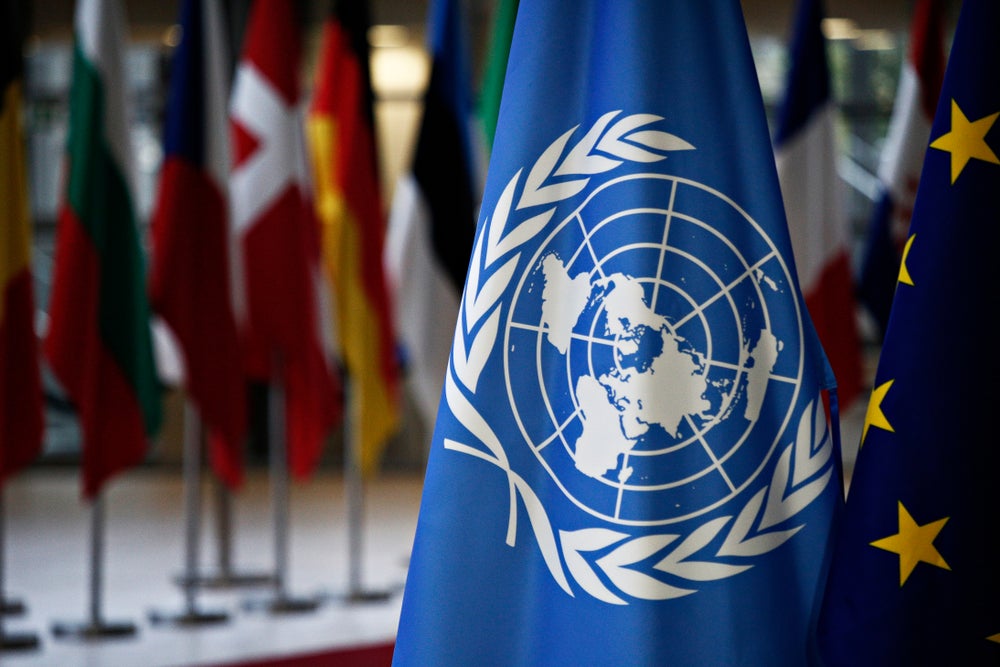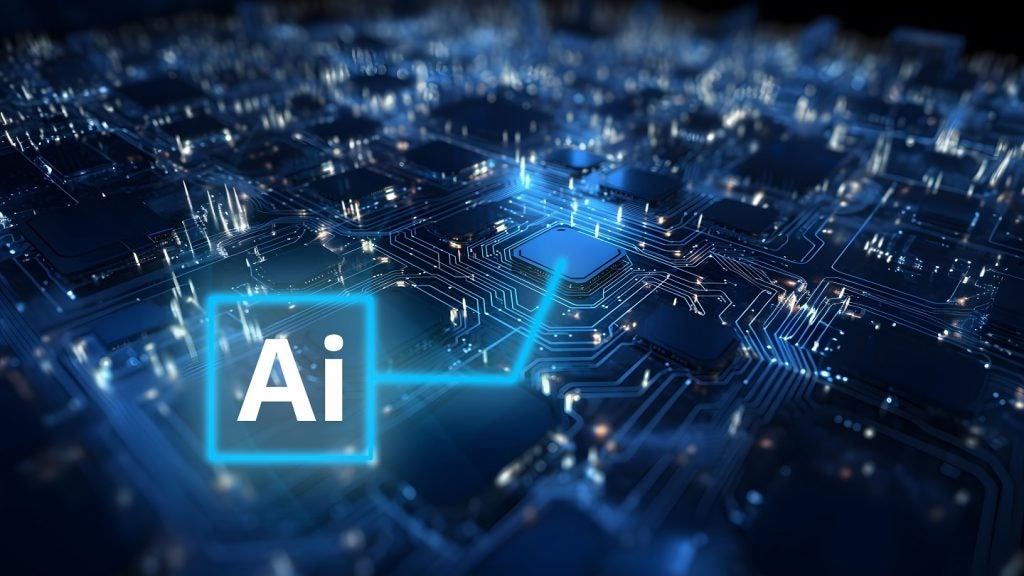Since the launch of ChatGPT in 2022, artificial intelligence (AI) has left the realm of fiction and become a disruptive reality that everyone must accept – including the United Nations (UN).
GlobalData forecasts that the global AI market will reach $1,037bn by 2030, indicating a compound annual growth rate of 39% between 2023 and 2030.
Despite its many benefits, AI has, so far, been a double-edged sword, bringing ethical and regulatory concerns along with all its capabilities.
AI remains a topic of controversy
AI has been a much-discussed topic, with some arguing that it has the potential to be truly harmful to humanity. In 2023, tech leaders including Elon Musk and Steve Wozniak even signed a letter that asked for a six-month halt on AI development for systems more advanced than ChatGPT-4 due to concerns about humanity’s safety.
There are also ethical issues surrounding AI, like its potential to replace human workers. In 2023, writers and actors went on strike against Hollywood studios to ensure that their jobs were protected from AI. Moreover, GlobalData divulged that AI’s capability to empower governments’ surveillance capabilities through monitoring citizens can create ethical issues regarding privacy.
Corporations are also under an increasing spotlight on AI ethics. According to GlobalData’s AI Executive Briefing, Big Tech companies like Meta, Alphabet, Amazon, and Apple perform poorly in AI ethics.
How well do you really know your competitors?
Access the most comprehensive Company Profiles on the market, powered by GlobalData. Save hours of research. Gain competitive edge.

Thank you!
Your download email will arrive shortly
Not ready to buy yet? Download a free sample
We are confident about the unique quality of our Company Profiles. However, we want you to make the most beneficial decision for your business, so we offer a free sample that you can download by submitting the below form
By GlobalDataNaturally, with so much hype and controversy surrounding it, AI regulation is often being discussed and proposed.
New UN global resolutions for AI
In March 2024, the General Assembly approved the first-ever global UN resolution regarding AI. The newly approved resolution will set principles for AI to be used and developed in a safe, reliable, and secure manner and in a way that shows regard to human rights and benefits all countries. It also aims to empower poorer developing countries, to ensure that they have a say in AI-related discussions and that they benefit from AI’s capabilities.
The US sponsored the resolution with more than 120 other countries, including China, acting as co-sponsors. However, there may be questions regarding how effective these resolutions will truly be. According to reports, the resolutions are not legally binding, so they are unlikely to stop countries whose militaries embed AI in their weapons, like the US and China. Nevertheless, disregarding the resolution may, in the end, hurt a country’s reputation.
However, this collective global effort suggests that countries are increasingly aware of the potential threats of AI to humanity as it becomes more integral to society.
Regulatory approaches to AI
The speed of progress and innovation makes the governance of AI challenging and different countries have adopted different approaches to AI regulation.
According to GlobalData, the US has been cautious about not overregulating AI and lags behind the European Union and other regions on AI regulation. Nevertheless, in late 2023, the country published its Presidential Executive Order for a secure and safe AI.
Europe is more pro-regulation. The EU AI Act, which was proposed in early 2021, was the first-ever regulatory framework for AI. The act was approved in late 2023.
China has been following a more government-first approach. In March 2024, the country released its new draft AI Law, which appears to be more focused on advancing the AI industry rather than protecting users and other humans against the technology.
The ever-increasing capabilities of AI indicate that the technology will be integral in people’s lives for the foreseeable future. Thus, we will see more collective, global efforts like the new resolution to ensure that AI does not pose a threat to anyone.









Related Company Profiles
Meta Platforms Inc
Alphabet Inc
Amazon.com Inc
Apple Inc
China Gas Holdings Ltd